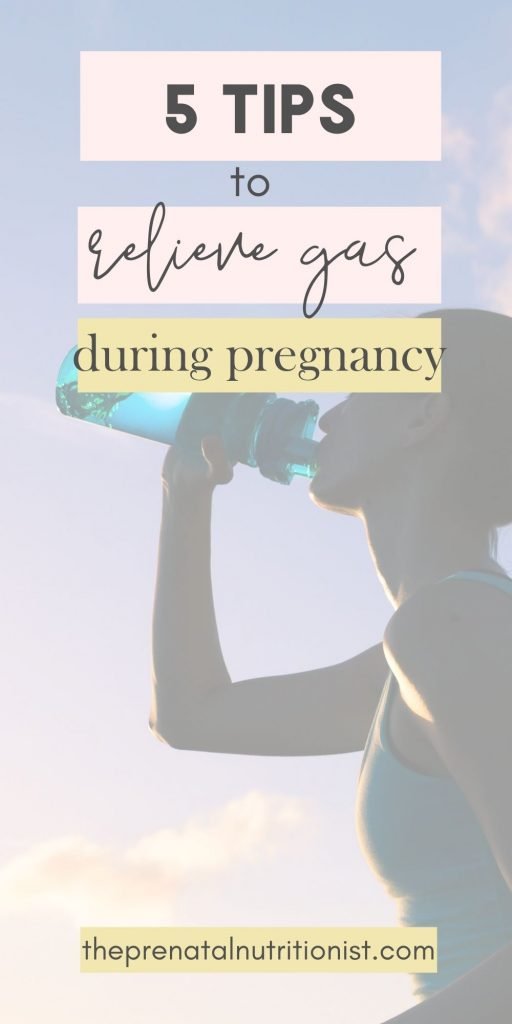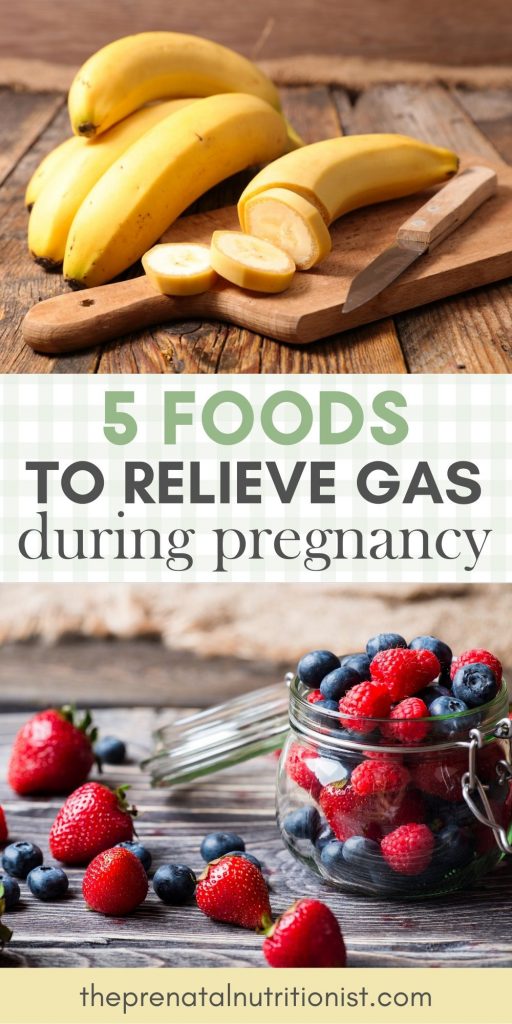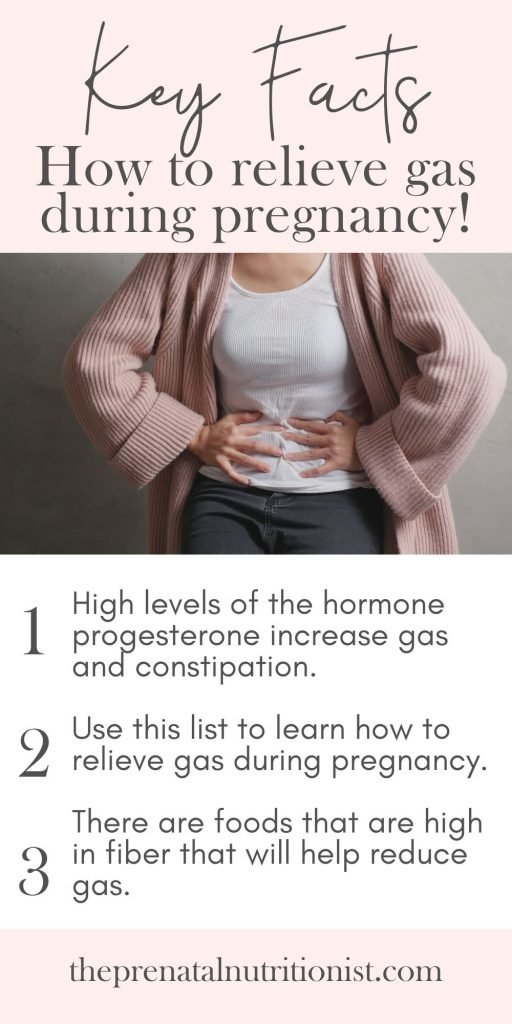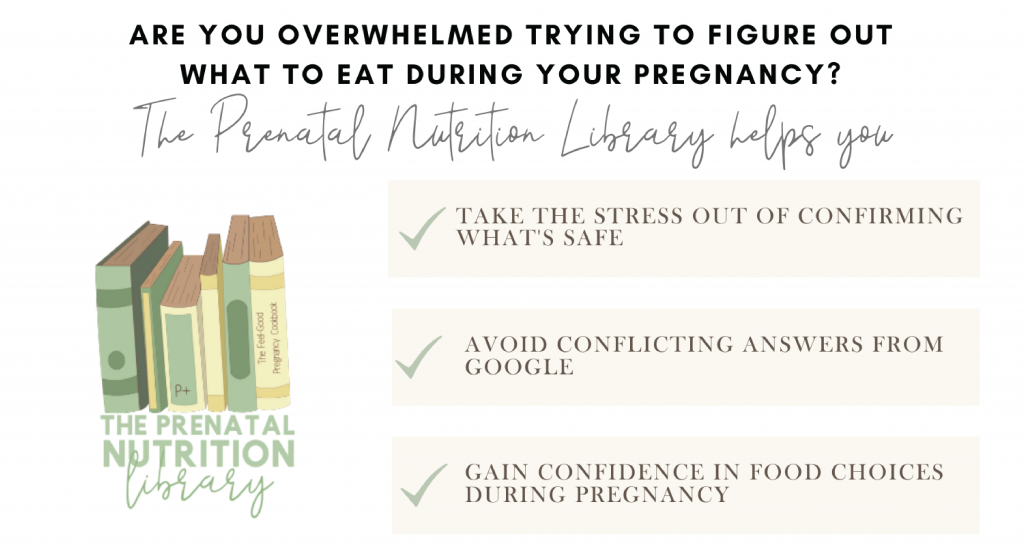
It’s no news that pregnancy causes a whole lot of changes in a pregnant woman’s body. Hormones are to blame for most of these irregularities, both the miraculous bits and the normal yet not-so-nice side effects. One of the annoying and even embarrassing changes that come with pregnancy is increased gas and bloating. It’s awful, I know! But it’s super common, so you are not alone.
High levels of the hormone progesterone can increase gas and constipation. And, it’s normal to see a surge of progesterone levels during pregnancy! Progesterone slows down your intestinal muscles, messing up your digestion in the process. This causes gas to build up and leads to bloating, constipation, and even abdominal pain.
These symptoms are certainly not pleasant and can be an added source of anxiety for pregnant women. Because of this, I decided to dedicate today’s post to how to prevent constipation and gas during pregnancy. But remember, this post is not a substitute for medical advice. If you experience gas or constipation that causes pain during pregnancy, be sure to contact your health care provider! Keep reading for my tips about how to pass gas more easily!

How To Relieve Gas During Pregnancy
Limit carbonated drinks.
Certain drinks like the bubbly ones increase gas and bloating during pregnancy. You want to avoid these if you’re experiencing severe gas and bloating. Drinks with ingredients like carbon dioxide actually have added gas to them, making things a lot worse! Other ingredients that you should steer clear of are fructose and sorbitol. Several people can’t digest fructose properly, leading to even more gas and bloating. Regarding sorbitol, this is a typical sugar replacement that the body can’t truly digest. We recommend avoiding all three of these ingredients in your drinks! And, if you’re wondering what to drink instead, here’s my list of the 10 best drinks for early pregnancy!
Avoid foods that contribute to gas pain.
There are foods that have always been famous for causing a little too much gas. Some of these foods’ effects may be even worse than carbonated drinks for pregnant women. Some foods that contribute to extra gas are cruciferous veggies like Brussel sprouts, broccoli, and kale, but other items like beans, dairy, fried foods, and wheat may also play a role. If you’re having severe gas problems during pregnancy, try keeping a food diary noting your symptoms after each meal to identify what foods may be causing it. If you like to chew gum be mindful that this can contribute to bloating too. Additionally, if bloating is the bigger issue, constipation is typically at the route of this so be sure to increase fiber and fluids to get things moving.
Have a consistent exercise routine.
When it comes to expert-recommended home remedies, it seems like exercise might be the answer to everything. Well, it definitely helps with gas during pregnancy! Studies show that physical activity can help to relieve gas and prevent constipation. This is because exercise stimulates digestion and the passing of gas through the digestive tract! So, consider doing an energizing yoga flow, taking a brisk walk, or dancing around your room next time you feel a little bloated or gassy. Incorporate a consistent exercise routine at least three times a week. This will help to improve your digestion and help you manage weight gain.
Drink a lot of water.
Staying hydrated is essential during pregnancy, but you probably know that! Besides all of its well-known and massive benefits, water can also keep things regular in addition to clearing your gas. This is thanks to the way it sheds the body from any excess sodium and supports bowel movement. And, you don’t just have to stick to plain water, fluids, in general, are great to help with constipation, bloating, and gas. Here’s how much water you should drink during pregnancy, so you can stay hydrated starting today.
Focus on fiber.
Though fiber has a reputation for making gas worse in the short term, it can actually prevent constipation and abdominal pain. That’s because fiber allows more water into the intestinal muscles. This way the stools soften and constipation (plus that annoying abdominal pain) is avoided. So if you suffer from constipation during pregnancy, make sure you have a source of fiber at every meal like strawberries, chia seeds, avocado, or lentils. These foods are high in fiber and other nutrients important for pregnancy.

Foods That Reduce Gas And Bloating During Pregnancy
Berries
We all know these delicious, colorful goodies! Berries are pretty universally loved and with good reason. Strawberries, blueberries, raspberries, and blackberries, all of these are tasty and nutrient-dense. Though berries are more than a tasty fruit, they also have some solid health benefits! One of them is the part they play in supporting gut health and softening stools to prevent constipation and bloating. This is thanks to their high fiber content, though they’re also loaded with several antioxidants, vitamins, and minerals.
Celery
Celery is a highly underrated vegetable! It has several health benefits and it’s also particularly helpful in relieving gas during pregnancy. This is thanks to its high water content, as this veggie is made up of about 95% water. It also contains mannitol, a sugar alcohol with the ability to soften stools by bringing water into the digestive tract. This means celery also prevents constipation! Read more about the famous celery juice during pregnancy in THIS article.
Oatmeal
Oatmeal is a very noble food, being the favorite breakfast meal of many Americans out there. Besides being a healthy and nutritious way to start your mornings, as long as there is some extra protein in there, oatmeal can also help you relieve gas and bloating during pregnancy. A very specific type of fiber is to thank for the anti-bloating properties of oats: beta-glucan. This soluble fiber can help to reduce bloating and regulate blood pressure. That’s what makes oatmeal such a beneficial food for the digestive tract!
Ginger
If you suffer from abdominal pain, you’ll want to give ginger a try! This food has long been used to treat chronic indigestion, bloating, and upset stomach or nausea. It can actually help to empty the stomach faster, so it may even help you escape heartburn. I should also mention ginger is completely safe to use in pregnancy, and can really be a lifesaver for things like morning sickness, too. You can add ginger to lemonade, tea, risottos, and even stews. Try to include it in a meal once a day!
Kiwis
When was the last time you ate kiwi? Kiwis are considered a low FOD-MAP food, if you suffer from Irritable Bowel Syndrome (IBS), this diet is often used for relief efforts, but essentially, kiwis are low in certain sugars that contribute to gas and bloating. Not only are kiwis safe for pregnant women to consume, but they are also packed full of nutrients, like fiber to prevent constipation. We love that chomping on a kiwi could relieve gas, AND that it will provide you with folate, vitamin C, and calcium.

What do you do to relieve gas and bloating during pregnancy?
Those are some tips to try and relieve gas and prevent constipation while pregnant! Remember, gas pain can be quite common during pregnancy, but that doesn’t mean you should continue to suffer. It’s best to stick to high fiber foods and fluids first before taking any supplements, besides your regular prenatal vitamins. But if your gas and bloating symptoms continue to get worse, don’t hesitate to inform your medical team. It’s always okay to bring symptoms like this up and get medically review!
For more comprehensive nutrition guidance for pregnant women, check out The Prenatal Nutrition Library. This completely digital space has all the info you need straight from a prenatal registered dietitian. That’s all for now, good luck keeping that pregnancy gas at bay!









